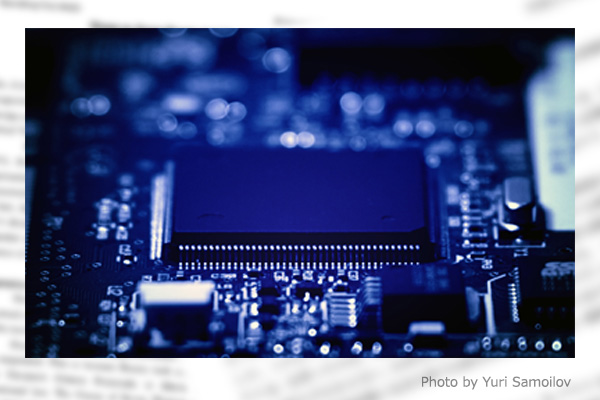Japan and the Netherlands agreed in late January to join U.S. restrictions of high-end semiconductor exports to China, according to press reports. The Japanese government has refrained from announcing the agreement officially, reportedly concerned about China’s reaction.
The U.S. export restrictions in question differ entirely from the past ones. Although restrictions under the Trump administration targeted specific Chinese companies such as telecommunications giant Huawei, the current restrictions cover the whole of China and do not separate military use from civilian use. The curbs are designed to prevent artificial intelligence and supercomputers from being used for advancing Chinese military technologies.
The essence that Japan, the United States and Europe work together in such export restrictions is important. Export controls are symbolic tools that reflect international order of the time. They make a grand transformation along with the drastic changes of international order.
Transition from COCOM to non-proliferation and to coalition controls
Let’s review the history of export controls.
During the Cold War, the Coordinating Committee for Export Control, known as COCOM, restricted exports to communist countries. COCOM finished its role upon the end of the Cold War and was replaced by the Wassenaar Arrangement for the non-proliferation of conventional weapons. But the arrangement fails to meet today’s international situation symbolized by U.S.-China confrontation. An international framework is now required for a few democracies including Japan, the United States and European countries with advanced technologies to block technology leakage that leads to expand Chinese military threats. The restrictions of high-end semiconductor exports can be the first step for creating such new framework. Washington has indicated that it would consider to expand export restrictions to cover quantum and biotechnologies, possibly creating a new coalition framework for export controls in addition to the four existing international non-proliferation frameworks. The history of export controls is now entering the third phase.
As Japan has conducted export controls under the Foreign Exchange and Foreign Trade Act, destinations subject to export controls should basically be specific. COCOM was designed to control exports to communist countries. In a short period before and after the Korean War, the China Committee, or CHINCOM, for additional controls on exports to China, coexisted with COCOM. In contrast, non-proliferation export controls aim to prevent weapons from being proliferated and cover all export destinations. Exceptionally, some friendly countries are subjected to simpler procedures called blanket approval.
Clarify China as a target
How should the new coalition framework be? As far as the military concern about China is the reason for imposing export restrictions, the destination subject to export controls must be China. This does not have to be blunt. In reality, however, such framework amounts to a new CHINCOM. Destinations subject to export controls should be limited to countries of concern, instead of covering all.
However, the Japanese government is afraid of China’s countermeasures. So, it would like to avoid specifying China and handle export restrictions as an extension of the non-proliferation type, leaving the target vague. But this approach fails to clarify the purpose of export restrictions. Even if the blanket approval system is adopted to ease burdens on exporters, unnecessary burdens will remain.
China has already reacted harshly, warning against the restrictions. If Japan leaves export control targets vague, China will regard Japan as vulnerable to intimidation. Japan has a way of limiting export restriction targets without naming them. As Japan’s latest National Security Strategy late last year clarified Chinese threats, the government should link export controls to the threat perception. The government’s mission is to clarify the purpose of restrictions and limit control targets.
Masahiko Hosokawa is a professor at Meisei University and a former director-general of the Trade Control Department at Japan’s Ministry of Economy, Trade and Industry. He is also a Planning Committee member at the Japan Institute for National Fundamentals.


